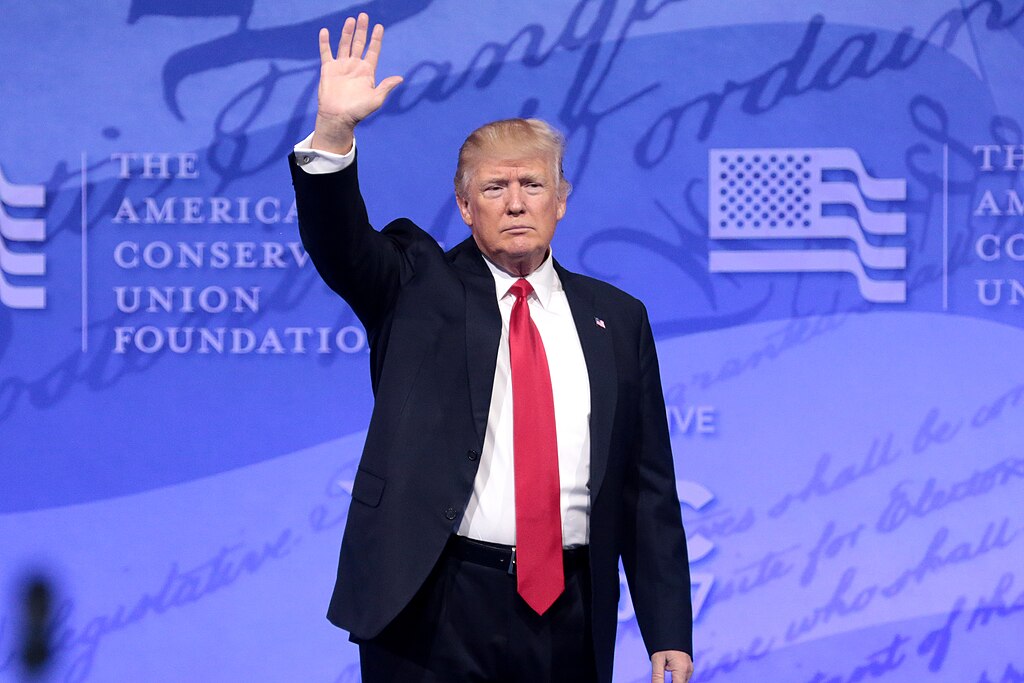As President Donald Trump embarks on his second term in 2025, his administration is poised to significantly reshape global alliances, emphasizing an "America First" doctrine that prioritizes U.S. interests. This approach has already begun to alter the dynamics of international relationships, prompting both anticipation and concern among global leaders.
Reevaluating Traditional Alliances
Central to Trump's foreign policy is a critical reassessment of longstanding alliances, particularly with European nations. The administration has expressed dissatisfaction with NATO allies' defense spending, urging them to meet their financial commitments. This stance has led to tensions within the alliance, with some European leaders questioning the reliability of U.S. support.
In the Asia-Pacific region, the U.S. is strengthening ties with allies such as Japan and South Korea to counter China's growing influence. However, Trump's unpredictable approach has raised concerns about the consistency of U.S. commitments, leading some nations to seek alternative partnerships.
Engaging with Adversaries
The Trump administration is also pursuing direct engagement with traditional adversaries. Notably, Trump has nominated retired Gen. Keith Kellogg as a special envoy to address the ongoing conflict between Ukraine and Russia. Kellogg's appointment signals a potential shift in U.S. involvement in the region, aiming for a negotiated settlement.
In the Middle East, Trump's policies reflect a strong pro-Israel stance, with the nomination of Mike Huckabee as ambassador to Israel. This decision underscores the administration's commitment to its allies in the region, while also indicating a possible reevaluation of U.S. involvement in ongoing conflicts.
Public Reaction
The administration's foreign policy moves have elicited diverse reactions on social media:
-
@GlobalObserver: "Redefining alliances is necessary, but alienating long-term partners could backfire."
-
@PeaceAdvocate: "Engaging with adversaries is a positive step toward global stability."
-
@DefenseAnalyst: "Pressuring NATO allies on spending might weaken collective security."
-
@AsiaPolicyWatch: "Strengthening ties in Asia is crucial, but consistency is key."
-
@MiddleEastMonitor: "Pro-Israel policies could escalate tensions in the region."
-
@DiplomacyFirst: "Diplomatic engagement should balance national interests with global cooperation."
Looking Ahead
As the Trump administration continues to implement its foreign policy agenda, the global community remains watchful. The redefinition of alliances and engagement strategies will have lasting impacts on international relations, necessitating careful navigation to maintain global stability.



 Trump to Address Nation as U.S. Launches Strikes in Iran, Axios Reports
Trump to Address Nation as U.S. Launches Strikes in Iran, Axios Reports  Israel Launches Fresh Strikes on Iran After Death of Supreme Leader Ayatollah Khamenei
Israel Launches Fresh Strikes on Iran After Death of Supreme Leader Ayatollah Khamenei  Middle East Conflict Escalates After Khamenei’s Death as U.S., Israel and Iran Exchange Strikes
Middle East Conflict Escalates After Khamenei’s Death as U.S., Israel and Iran Exchange Strikes  Netanyahu Suggests Iran’s Supreme Leader Khamenei May Have Been Killed in Israeli-U.S. Strikes
Netanyahu Suggests Iran’s Supreme Leader Khamenei May Have Been Killed in Israeli-U.S. Strikes  Suspected Drone Strike Hits RAF Akrotiri Base in Cyprus, Causing Limited Damage
Suspected Drone Strike Hits RAF Akrotiri Base in Cyprus, Causing Limited Damage  Why did Iran bomb Dubai? A Middle East expert explains the regional alliances at play
Why did Iran bomb Dubai? A Middle East expert explains the regional alliances at play  EU Urges Maximum Restraint in Iran Conflict Amid Fears of Regional Escalation and Oil Supply Disruption
EU Urges Maximum Restraint in Iran Conflict Amid Fears of Regional Escalation and Oil Supply Disruption  Trump Launches Operation Epic Fury: U.S. Strikes on Iran Mark High-Risk Shift in Middle East
Trump Launches Operation Epic Fury: U.S. Strikes on Iran Mark High-Risk Shift in Middle East  Trump Announces U.S. Strikes on Iran Navy as Conflict Escalates
Trump Announces U.S. Strikes on Iran Navy as Conflict Escalates  U.S. Deploys Tomahawks, B-2 Bombers, F-35 Jets and AI Tools in Operation Epic Fury Against Iran
U.S. Deploys Tomahawks, B-2 Bombers, F-35 Jets and AI Tools in Operation Epic Fury Against Iran  Pentagon Leaders Monitor U.S. Iran Operation from Mar-a-Lago
Pentagon Leaders Monitor U.S. Iran Operation from Mar-a-Lago  Macron Urges Emergency UN Security Council Meeting as US-Israel Strikes on Iran Escalate Middle East Tensions
Macron Urges Emergency UN Security Council Meeting as US-Israel Strikes on Iran Escalate Middle East Tensions  Trump Warns Iran as Gulf Conflict Disrupts Oil Markets and Global Trade
Trump Warns Iran as Gulf Conflict Disrupts Oil Markets and Global Trade  Iran Supreme Leader Ayatollah Ali Khamenei Killed in Israeli, U.S. Strikes: Reuters
Iran Supreme Leader Ayatollah Ali Khamenei Killed in Israeli, U.S. Strikes: Reuters  Trump Says U.S. Attacks on Iran Will Continue, Warns of More American Casualties
Trump Says U.S. Attacks on Iran Will Continue, Warns of More American Casualties  Marco Rubio to Brief Congress After U.S.-Israeli Strikes on Iran
Marco Rubio to Brief Congress After U.S.-Israeli Strikes on Iran  Russia Signals Openness to U.S. Security Guarantees for Ukraine at Geneva Peace Talks
Russia Signals Openness to U.S. Security Guarantees for Ukraine at Geneva Peace Talks 































